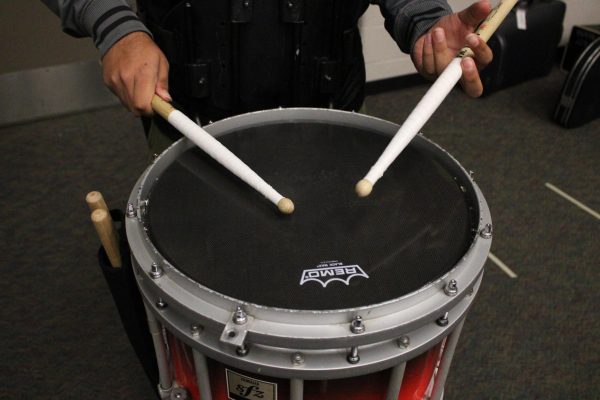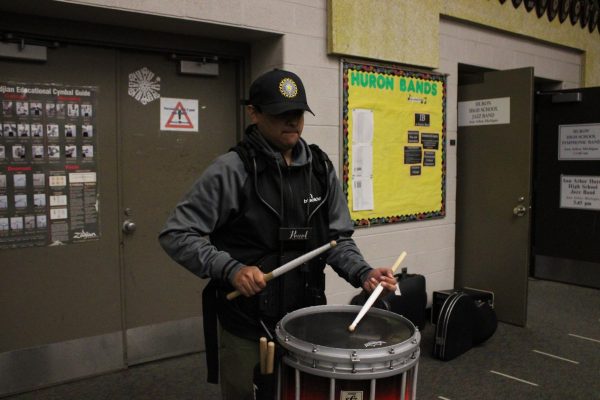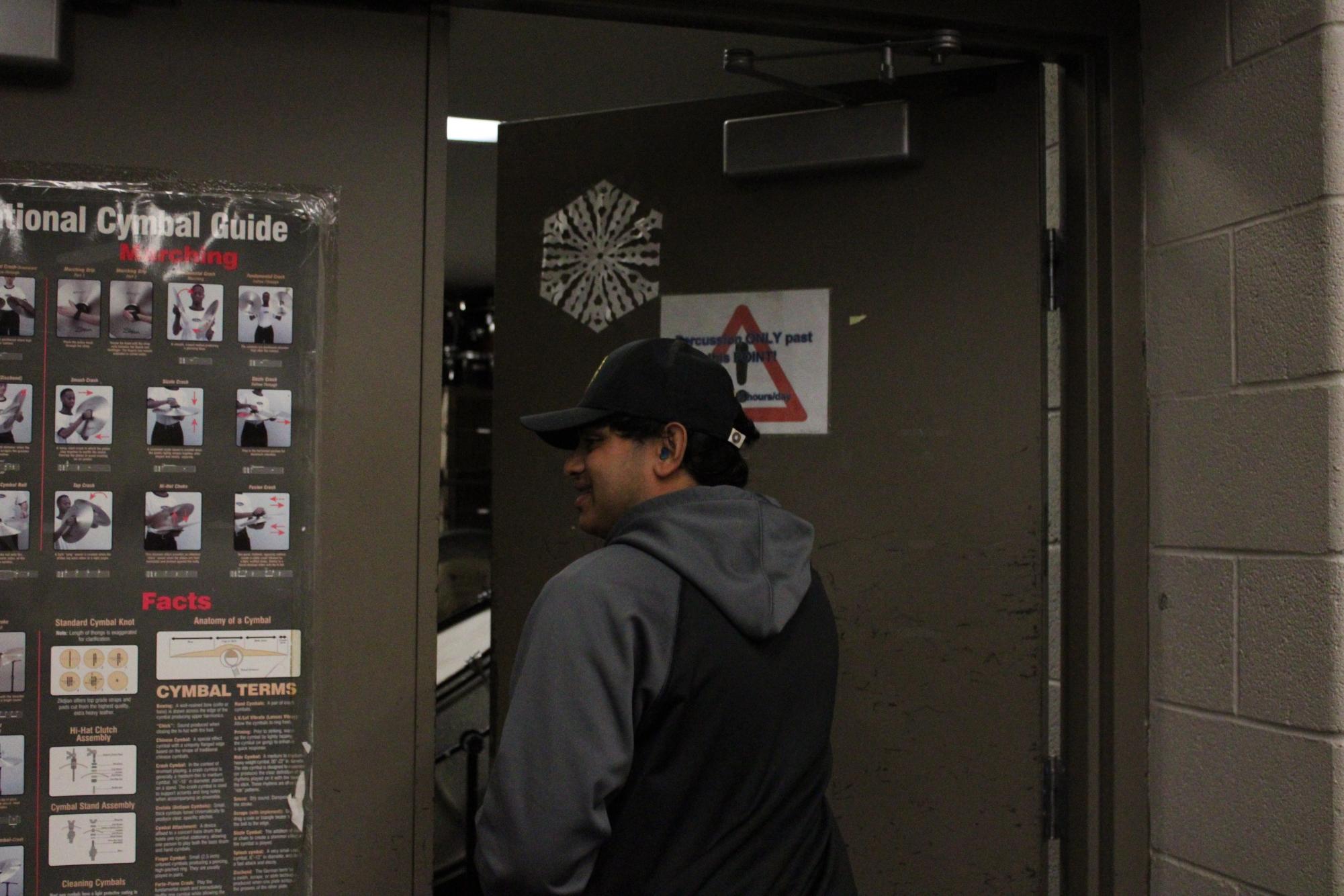Senior Purav Chavarkar, a member of the Huron Symphony Band, has always loved music since a young age. Starting out with piano, the notes and rhymes of music remained familiar, but Chavarkar did not get to hear them the same as those around him.

“Whenever I play percussion, I feel like a real person expressing myself, not someone with hearing loss,” Chavarkar said. “I don’t need to hear anything. I just need to feel it.”
Born with a genetic condition called congenital hearing loss, Chavarkar has spent his whole life with mild hearing loss in both ears. The condition specifically makes it harder to hear higher frequencies beyond generally making his ears sensitive to sound. It’s led Chavarkar to using hearing aids today to help with everyday school work and life, but hasn’t left him without hardships.
“Growing up, I was always pampered around because I had hearing loss,” Chavarkar said. “People would treat me more like an object than a person. They only paid attention to me because of my disability, not who I was, and that’s always affected me.”
The view of others’ judgement for his condition has always been part of Chavarkar’s life, born with his disability, and almost inescapable. This changed for Chavarkar, though, when he first began playing percussion in middle school.
“In fifth grade, we were choosing our instruments, and the only people who could play percussion were the kids who knew piano before,” Chavarkar said. “So, I decided to audition for percussion, and got in!”

Percussion began for him in middle school, and only continued to grow with conductor Caroline Fitzgerald. His first interactions in a large ensemble were exhilarating and inspiring, and he quickly found himself spending almost every day with his new hobby.
Since then, it’s remained a large part of his life. From the timpani to the marimba to the keys, Chavarkar continues to not just play, but love percussion with his whole spirit, considering it his true form of self expression.
“I never went back to piano or any other instruments because I felt that percussion was everything I ever needed,” he said. “It really allows me to express myself.”
Chavarkar’s love for percussion doesn’t just end in the concert hall, though, but also translates to the marching band field. As a member of the Huron Rhythm Rats’ drumline, Chavarkar has spent all four years of high school as a member of the marching band while getting to know and bond with the community.
“The [drum]line is really like a family to me,” Chavarkar said. “My favorite part has always been the people. Every Monday night, we have drumline rehearsals, and everyone is so energetic and ready to play, especially my snare line.”
Playing the snare drum with the marching band came to Chavarkar during their sophomore year with Huron’s competitive audition process. With hard work and practice, he was able to make it onto the snare line with other upperclassmen, a long term goal of his.
This large success, though, was met with a bump along the road as well with one conversation with his audiologist who told Chavarkar that playing snare would make his hearing loss worse with the proximity and high frequencies of the drum.
“It honestly crushed me,” Chavarkar said. “That was my life, right? Just trying to get onto [the] snare drum, and now I learned it was making my hearing loss progress faster.”
After learning of this, Chavarkar was met with a choice from his audiologist: continue snare drum and accept the consequences of his hearing loss or quit to prevent any further harm. And the choice was clear from the start.
“Band is my family, and I love it so much,” Chavarkar said. “It’s allowed me to become a better person and has helped me through hard times. If my hearing loss has to degrade more, I wouldn’t trade it for anything.”
Even when faced with adversity and setbacks, Chavarkar chooses to continue to push through to not just do what he loves, but do it with the community and people he loves as well. His own resilience and commitment to continue playing music with the Huron Bands emphasize an important lesson for every high schooler, teenager, and adult alike: to not give up.
“Find a group of people that support you,” Chavarkar said. “But, more importantly, make sure to support yourself.”




